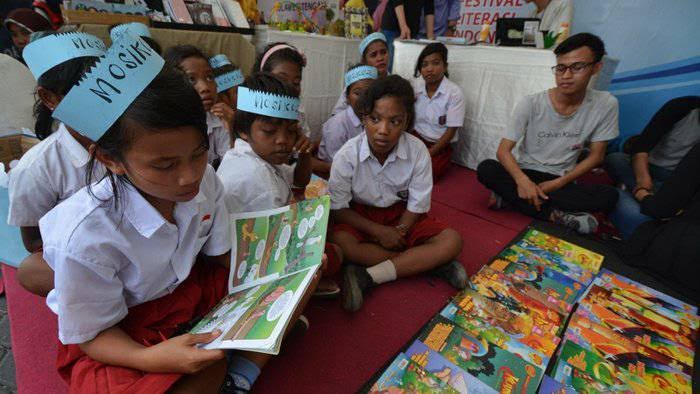Literacy is a process of acquiring knowledge or developing skills in a specific domain. Literacy extends beyond the traditional realms of reading and writing. It pervades our daily activities, including our formal educational processes in classrooms and attending socialization events aimed at enhancing student skills. These are all diverse facets of literacy.
Post-independence, Indonesia has experienced three significant eras or ‘ordes’. Each orde had its distinct set of policies and regulations. The first era is referred to as the Old Order, followed by the New Order, and finally, the Reform Era. The focus here is the transition from the New Order to the Reform Era.

The New Order was a dark period for Indonesian literacy. During this era, the nation was under the authoritarian regime of Soeharto. This era is referred to as a dark period for literacy as writers who dared to criticize the Soeharto regime were suppressed. Those who dared to defame the regime were hunted down as criminals, leading most thinkers to choose silence over persecution. This situation arose due to the Armed Forces of the Republic of Indonesia (ABRI) leaning towards the Soeharto regime, effectively turning the ABRI into a powerful weapon against its own people, when their primary duty should have been to protect the citizenry and provide safety.
The Reform Era marked a period of drastic changes or improvements across all fields in the country. This era began after the fall of Soeharto’s government in 1998 and continues to this day. During this time, freedom of speech was permitted, leading to the emergence of many creative and talented writers. This period has seen the birth of great authors like Joko Pinurbo, Taufik Ismail, and Seno Gumira Ajidarma, thus earning this generation the moniker ‘the golden generation’.










